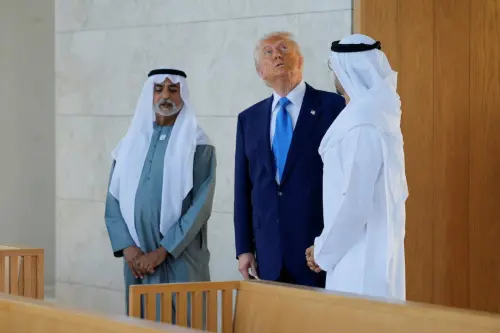Introduction
A multi-billion dollar project aimed at creating one of the world's largest artificial intelligence campuses in the United Arab Emirates is facing delays due to ongoing security concerns.Context
This ambitious initiative was announced during President Donald Trump's recent visit to Abu Dhabi, where leaders from the U.S. and the UAE unveiled plans for a significant artificial intelligence campus. Spanning a planned area of 10 square miles (approximately 26 square kilometers), the site is being financed by G42, an Emirati tech firm linked to the state, which is taking the lead in developing the country's AI industry.Major technology companies such as Nvidia, OpenAI, Cisco, Oracle, and Japan's SoftBank are collaborating with G42 to establish this project, named Stargate UAE, which is expected to go online in 2026. The project represents a strategic pivot towards U.S. technology, as U.S. officials have positioned it as advantageous over Chinese alternatives.
Developments
Despite the initial enthusiasm, several sources have reported that U.S. officials have not finalized the security protocols necessary for exporting advanced chips or the enforcement mechanisms for the agreement with the UAE, leaving the deal unresolved. Although Abu Dhabi committed to aligning its national security regulations with Washington's standards during Trump's visit, concerns linger regarding the UAE's relationships with China.Previous tensions over technology exports were exemplified during Trump’s first term when the UAE, alongside other nations, advanced deployment of Huawei's 5G technology despite U.S. opposition. Some in the current administration remain skeptical about the UAE’s capacity to ensure that U.S. technology does not fall into adversarial hands.
The U.S. administration currently does not have a defined timeline for finalizing the deal, with expectations that Abu Dhabi will have to agree to unspecified U.S. controls over technology. There is also discussion about restrictions that may prevent the use of Chinese technology and limit the employment of Chinese nationals at the proposed AI campus.
In light of these complexities, opposition from both Republican and Democrat lawmakers regarding the UAE's ties with China persists, although the administration remains committed to concluding the deal.
Stargate UAE is anticipated to incorporate 100,000 advanced Nvidia chips, leveraging the cutting-edge capabilities of Nvidia's Grace Blackwell GB300 systems, the most advanced AI servers available today.
Despite its modest geographical size compared to other players in the region, the UAE has established itself as a key Middle Eastern entity, actively navigating strategic relationships with both China and Russia.
This evolving relationship includes significant shifts, such as G42 divesting from Chinese hardware and investments in exchange for improved access to American technology, exemplified by Microsoft’s acquisition of a $1.5 billion stake in G42.
However, significant Chinese companies, including Huawei and Alibaba Cloud, continue to operate in the region, raising concerns about potential smuggling operations for AI chips directed towards China.
Furthermore, since the onset of sanctions against Russia in 2022, the UAE has emerged as a hub for businesses impacted by these economic measures. The Trump administration has indicated that American firms would manage the Emirati-built data centers, which are set to offer "American-managed" cloud services across the region.
